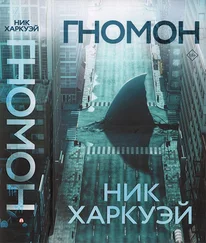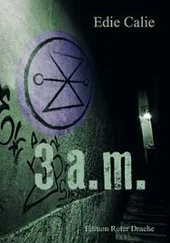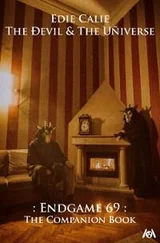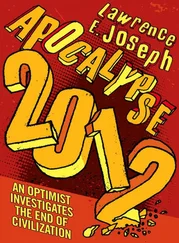Rice was congratulating himself on not throwing up when he realised abruptly that he was going to, and ran.
One hundred years after a primitive missile composed of wood and goosefeathers and capped with a metallic blade transfixed the brain of Harold Godwinson and announced the success of the Norman Conquest—but five hundred years before a young bisexual man obsessed with witches and demons acceded to the thrones of England and Scotland and commissioned a bible which (all evidence to the contrary) many still insist is the unaltered word of God—a hunter named Simon Sharrow was struck by a bolt of lightning and rendered unconscious for nine days.
Three being God’s number, symbolising the Trinity, and nine being three times three and thus a number of enormous holiness—superseded in contemporary Christian numerological significance only by twenty-seven (three times three times three) and nineteen-thousand-six-hundred-and-eighty-three (the cube of twenty-seven) and a series of numbers whose nature will already be clear but which at that time escaped the realm of most mortal mathematicians—Simon Sharrow was closely watched and well-tended in his convalescence. It may have helped that he was a youth of striking countenance, and the son of a local landowner whose decision to wed a Norman bride had closed a certain unpleasant chapter in local ethnic politics.
In whatever case, though Simon Sharrow healed and grew strong again, he did not speak. He made himself understood in signs, and gave every indication of comprehending all that was said to him, and from time to time he drew breath or cleared his throat, and his father and mother and their servants and serfs waited for him to say “Hullo,” or “I need to pee,” or even “What happened?”
But Simon Sharrow said nothing, and the whispers began: that he was made an idiot or possessed by a devil; that he had died and was a walking corpse and dared not speak lest his soul escape; that the man who returned from the hunt was not Simon Sharrow but an escaped knave from the stocks of Cirencester. The feeling was very strong that Cedric Sharrow must look to his bride for another heir. Cedric Sharrow (who greatly loved his foreign invader wife, and knew too well the chancy business of childbirth) grew frantic to provide a cure. Simon was bled, heated, chilled, exorcised, surrounded by magicians, baptised, touched with holy relics and with talismans more dubious, and even treated by an actual doctor in the modern sense whose reasoned approach was quite enlightened but who alas lacked the necessary diagnostic framework or tools to be of any concrete use. And still Simon Sharrow said nothing, until one morning a stable boy, touched by the sun and fresh with simple, unconsidered pleasure in the fine horse he was brushing and the love of a girl in the local inn, sang a song in a high, confident voice beneath the window where Simon Sharrow gazed silently out upon the world.
Simon Sharrow opened his mouth (the monks who were with him recorded that he “ope’d” it, in line with monkish grammar) and began a counterpoint. His voice rippled and frisked around the melody, dived deep into a mournful minor, and when the stable boy stopped out of sheer amazement, emerged full-throated and triumphant like a trumpet, a glorious halloo of love over all. There were no words—Simon Sharrow never spoke another actual word in all his life—but that was quite irrelevant. The music was clearer than words ever are, a statement of the moment and the soul, and the monks fell over on their faces to worship the angelic presence among them, and Simon Sharrow was deemed blessed among men. This lightning, heretofore thought a great misfortune, was now understood to be the arrival on Earth of a quintessential being, an angel of God. The seraph (which might arguably be a Prince, Potentate, Throne, Dominion, or perhaps a more lowly cherub) rightly concerned at the horrid effect of matter on its sublime personage, had taken shelter within Simon Sharrow, and in a Godly mirror of more dread possessions, made of his body a redoubt against the crass elements of the material world.
Simon Sharrow was an intelligent man, and the people of his father’s holdings were wise enough in their own right. Simon’s acclamation as the voice of justice and sacred rulership created a realm of considered fairness to which neighbouring folk wished to add themselves, and good governance broke out like a plague across the region. Simon Sharrow’s accident ushered in five centuries of prosperity for Sharrow Town and its surroundings, and his descendants grew rich and were ennobled and ultimately moved away to a grand home in London. The good fortune of the town itself was brought to a bloody close during the Civil War of 1642 when a band of Roundheads burned the place to cinders, so that all that remained of the old settlement by the time Edie Banister got off the train was the name—now shortened to Shrewton—and an ill-considered statue of a boy being struck by lightning.
Edie Banister sat in the Copper Kettle and scowled at a piece of Linzertorte. Mrs Mandel, the cheery matron who owned the Copper Kettle, insisted it was a Raspberry Almond Lattice, and that it was a traditional local recipe she had from her grandmother. Edie had decided it would be unwelcome to point out to Mrs Mandel that both the slice and its maker were almost certainly of mitteleuropäisch descent. She had bitten down, therefore, on the information that Linzertorte was a respectable Austrian delicacy and that Mandel was itself the German word for almond, and contrived instead a genial murmur of little old lady thanks.
Coming here had been, Edie decided, a mistake. It had seemed vital in London, when she had heard that Donny Caspian was dead, that she should come and see fair play. One of the good men and true, was Donny, and if there was even a faint aroma of old business about this, then Edie would be there to sniff it out, and make damn sure it was sniffed in turn by the powers above. It had seemed, to be honest, like a bit of a last bow, a sort of Edie Rides Again. She would arrive, spot the hidden clue and read the scene in the light of her knowledge of the secret parts of Donny’s life, and pronounce gravely that these were matters to be dealt with at the highest level. Detectives would marvel and the aforementioned highest level would be reminded that some of the old guard were still around to be thanked for years of service. Dame Edie, perhaps .
But here in the Copper Kettle, locked in combat with tea made apparently out of sump water, and with the huge Viennese mirror on the wall opposite telling her she was past eighty and ought to be in bed—alone—she was suffering from an acute sense of dissonance and shame. It was hardly fair to Donny Caspian that she hoped to find in his death the opportunity to shine. Her motives were murky, and she suspected they had much to do with the frankly alarming age she now was and a gnawing sense of—what? Abandonment? Not exactly. Say rather, bewilderment, and say it please in the fullest knowledge of the meaning of the word. Edie was not foggy in the head; she was not, in the polite language used to refer to seniors in the modern United Kingdom, confused. She was bewildered in the true Oxford English Dictionary sense of the word: lost in a pathless place. Or perhaps there was a perfectly clear path in front of her, and she just didn’t like it.
She had come here—leaving behind her one real friend still surviving on Earth, in the care of her neighbour Mrs Boyd—to try her ancient skills. To be a spy once more. She had seen herself, full of steely, silvered resolve, fixing local coppers with her old naval commander’s authority and getting the thing done right; playing the sort of retired but still forceful figure every British secret agent should eventually become. Instead, here she was reflected in the mirror as a cake-eating, gossipy Old Lady Detective, fit for the wheelchair and resolving the theft of inherited diamonds. The sort of old girl who knows the scullery maid is actually the heiress’s villainous half-sister, back from South America to steal the fortune, because of the way she positions a cruet.
Читать дальше
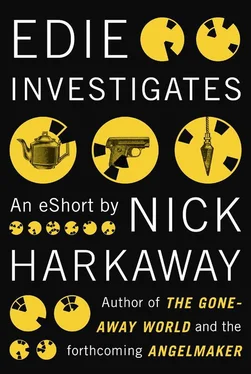




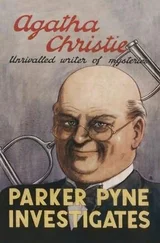
![Ник Харкуэй - Гномон [litres]](/books/400023/nik-harkuej-gnomon-litres-thumb.webp)
